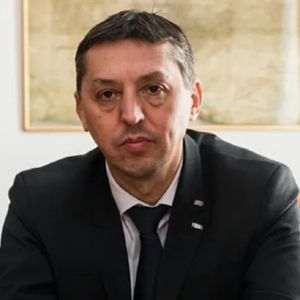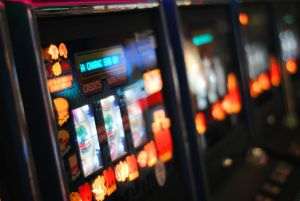• Interview with Valentin Ionescu, the former general manager of the Bucharest Stock Exchange
• I doubt that the government will change its policy concerning the capital market
Reporter: Concisely, could you discuss what 2011 was like for the stock market and for the Bucharest Stock Exchange?
Valentin Ionescu: I think it was a difficult year from all points of view. On the foreign markets, we only had negative events, and internally, no decision that was made politically did anything to effectively help the Bucharest Stock Exchange. In this case, what we succeeded on the Bucharest Stock Exchange was to have an almost one-sided development, meaning that we developed certain segments of the Exchange, and we diversified our products. We have reinvigorated the derivatives market, we welcomed investors with new products, which have gold, silver, and wheat as their underlying assets. What we tried to do was to anticipate their needs and to meet them halfway with concrete solutions for all types of investors. The liquidity of structured products has greatly increased, proving increased investor interest, even though they are relatively new on the Romanian market and they are relatively complex.
Aside from the diversification of the products, we have launched a new market, the ATS International tier. When I came to the BSE, this market segment existed only on paper, it needed companies, and together with two intermediaries - the first was BCR, which brought Mercedes, then came Tradeville, which brought the other companies - we have developed this market which is intended for any type of investor, but especially for retail ones, as for the latter it is cheaper to buy Daimler in Bucharest than it is in Frankfurt.
It wasn't an easy year, because the intentions of the government to sell companies on the Bucharest Stock Exchange didn't come true. As you know, the offering of "Petrom" was launched at a time when there was talk about Italy's "default", and the sovereign debt crisis in Europe. It was an offering in which, unfortunately, the Stock Exchange didn't have much input. Throughout the year, before the offering, we tried to maintain a close relationship with the Office For The State's Interests and Industrial Privatization (OPSPI) and with the Ministry of the Economy, we even had meetings with Minister Ion Ariton and with Victor Cazana who was the head of the OPSPI at the time. During those meetings, we explained the position of the Bucharest Stock Exchange and we offered our support. But we had the surprise of the offering being approved in a form, which I wouldn't really say it was the way we wanted it to be, with a closed book, meaning it wouldn't be conducted through the system of the BSE. Furthermore, no difference was made between the institutional and the retail investors, by giving the former a discount, as is customary in Poland, where the IPOs are usually successful.
In a year where we only had negative news on a global level, the state to set the price of the offering very close to the one in the market. This was a failure, but it also served as a lesson, including for the Stock Exchange, which took action immediately after the offering ended.
Reporter: The offering of "Petrom", caused you problems as well, as you were criticized by the Board of the Exchange...
Valentin Ionescu: I was criticized for signing a technical protocol and I was also given a warning. At the time, the members of the Board thought that I had signed a contract, but it was simply a technical protocol, which was mandatory, and which only contains strictly technical details concerning: the symbol of the offering, the date and hour of reporting, the method used for the placing of the orders etc.
Reporter: But was it mandatory that the offering would not take place through the system of the Bucharest Stock Exchange?
Valentin Ionescu: The offering was only going to be reported through the system of the Bucharest Stock Exchange. What was I supposed to do, turn down the prospectus which had been approved by the Romanian National Securities Commission (CNVM)? I only had a few hours available to ponder and I think it would have been worse had I refused. I could see the headlines in the papers... It would have been the first time in the history of the Exchange when a prospectus approved by the Romanian National Securities Commission had been turned down, especially at the time of the biggest offering in the history of the Stock Exchange, with an estimated value of 450 million Euros.
Reporter: Indeed, but since you had arguments...
Valentin Ionescu: Did I? I even thought about what arguments I actually had to decline it. That it had a closed book? In Poland or in the Czech Republic, all of the offerings are conducted like that, and they are successful, they're launching them one after another. Was it that it had a minimum price and a top price? I didn't know what the minimum price would be, perhaps it was going to be attractive. That it wasn't going to be conducted through the system of the Exchange? That is true, but back then, the code of the Exchange allowed that. After that, we changed the Code of the Exchange, meaning that all offerings, even during their subscription period, would be conducted through the system of the Exchange. Obviously, if the Code had included that provision at the time, we would have rejected the prospectus. We didn't have the legal grounds. BURSA wrote about this, it provided an interpretation of certain paragraphs, but the Code did not outright state that the offering had to be conducted through the system of the Exchange. And we had been waiting for it for such a long time...
Reporter: What difficult moments were there in 2011?
Valentin Ionescu: The time when the BET index (ed. note: which tracks the ten most liquid stocks) was falling 15%. It was a day when everyone was calling me. Some people were asking me why I wasn't halting the Exchange. It was a good thing that I didn't, because it was later seen that it fell somewhere near 15%, and then it bounced back.
Reporter: Tell us about what that day was like for you.
Valentin Ionescu: I was watching the screen, I was keeping in touch with the people in trading, to see what was happening, and naturally, I was prepared for any alternative. It wasn't easy to make a decision, but, by reviewing the market conditions, I decided that it was best not to halt trading at -15%.
And it didn't fall much more after that, it slightly recovered. Dar we were obviously looking carefully and anxiously because those were times where you had to make a decision and that decision meant that all the orders in the market would be frozen, and all the brokers would stop their trading.
Reporter: Aside from the failure of the "Petrom" offering, how much were you influenced by the foreign news?
Valentin Ionescu: Let's say that the first half of the year was ruled by optimism. In the second semester, optimism was replaced by caution because I realized what was happening, as proven by the fact that July and August were the months with the biggest trading volumes. We had over 12 million Euros of turnover on average. Why? Because there was massive selling. There was massive selling and because of that, I was half happy, half sad. Because I kept thinking of what would happen after September, because those who sold did not return to the market. There was volume, there was massive selling. So the volumes of July and August didn't cause me to be happy for the long term. And my concerns were justified, considering that the past three months were unsatisfactory, with volumes below the average of the first nine months.
Reporter: You say you had no political support. How could the authorities have supported you?
Valentin Ionescu: I would have liked it if the government had realized importance of the Stock Exchange and of the capital market and had taken advantage of it. I took several steps in this regard, including presenting documentation and analyses by which I demonstrated the benefits that the state would have in the long run by using the capital market. Throughout this year I succeeded in meeting several ministers, Ion Ariton (ed. note: The Minister of the Economy), Anca Boagiu (ed. note: the Minister of Transports), Valerian Vreme (ed. note: the Minister of Communications) and with advisors to the Prime Minister. I talked to all of them about the companies that they have in their portfolios and about the possibility of selling them on the Stock Exchange or of selling stakes in them, and I told them that the government only stood to gain by having a company listed: the management would be more responsible due to the criteria imposed by the listing (an alternative to private management), the disappearance of "leech" companies that live off of the state owned companies, increased profitability etc.. With Mr. Vreme, I talked to him about the Romanian Post Office and Romtelecom, with Mrs. Anca Boagiu, about the portfolio of the Ministry of Transportation, and with Mr. Ariton I talked about the companies which were going to be brought to the Stock Exchange, Petrom, Transelectrica, Transgaz, Romgaz. They all understood exactly the importance of the stock market, and of raising money through it. The problem was when the time came to actually do something, to materialize these plans. I hope, though, that the government will proceed with those plans in 2012.
Reporter: How likely are the privatizations to happen in 2012?
Valentin Ionescu: I hope that in 2012 the authorities will achieve at least 50% of their goals, because, unfortunately, in 2011, not even one of the expected offerings took place. So, achieving 50% of next year's plans, when it comes to the planned public offerings, would be a great achievement.
Reporter: Do you think market conditions will get better or worse in 2012?
Valentin Ionescu: I think that 2012 will be just as hard as 2011. The market conditions could improve if some of the offerings of the state were completed. I doubt that the government will change its policy towards the capital market, when it comes to stimulating it, for example, by abandoning the 16% tax for gains on stocks held for more than one year.
Reporter: What other stocks will the BSE acquire?
Valentin Ionescu: The BSE did not acquire any exchanges. There were some talks. I think that one needs to be open and ready for all the opportunities that exist or that may come. We had talks with the Bulgarians (ed. note: the Bulgarian Stock Exchange), we were waiting for it to be put up for sale so we could draft a concrete plan, except it hasn't happened. We signed a memorandum of understanding and we were going to set up a shared index and a double listing. I hope this project will continue.
Reporter: What will happen to the money which was put aside for the acquisition of a foreign Stock Exchange?
Valentin Ionescu: We had about 20 million lei set aside for tangible assets, they weren't spent. Perhaps there will be another proposal in 2012, but it will need to be approved by the General Shareholder Meeting.
Reporter: How do you feel about the idea of paying out dividends?
Valentin Ionescu: I think that the same policy of almost entirely paying out dividends should continue, except for the legal reserves.
Reporter: But you are not in favor of reducing the share capital ...
Valentin Ionescu: No. My proposal to the board of directors, throughout the year was to perform a "buy-back"... To acquire stock from the market, say 10% of it, and we would have had several benefits. The NAV would have increased and (ed. note: Net Asset Value) would have increased and everybody would have been happy.
The price was near the lows. What could we do with that block of shares? We would give stakes to the employees and we would incentivize them, make them feel like they are part of the business. The board could decide the percentage to be distributed, 2%- 3% or more of the 10% of shares that were bought back; I would have distributed that to the employees, and the rest of the shares could have been cancelled. Not just to the management, to all the employees, according to their position and importance, because that is how everyone becomes more responsible.


























































